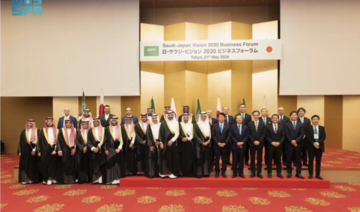TOKYO: A laggard in embracing the ‘fintech’, or financial technology, revolution, Japan is set to ease investment restrictions that could free up the flow of capital in an economy sitting on an estimated $9 trillion in individuals’ cash deposits.
Strict regulation, easy access to credit due to rock-bottom interest rates, and weak demand for innovative financial services from a risk-averse population that still prefers cash to credit cards, have strangled fintech’s advance in Japan.
Fintech ventures — usually start-ups leveraging technology from cloud data storage to smartphones to provide loans, insurance and payment services — raised $2.7 billion in China last year, and over $1.5 billion in India, according to CB Insights data. Ventures in the US attracted investment of around $7.4 billion.
In comparison, investment in Japanese ventures reached only around $44 million in the first nine months of 2015.
Now, Japan’s financial industry regulator hopes relaxed rules on investing in financial ventures, and a new system for regulating virtual currency exchanges will pass through parliament by May — a first step in kickstarting the fintech revolution in the world’s third-biggest economy.
“The law changes aren’t a goal, but a first step,” said Norio Sato, a senior official at the Financial Services Authority (FSA).
“Fintech will have a big impact on financial services.”
The changes, which will allow banks to buy stakes of up to 100 percent in non-finance-related firms, will free up Japan’s three megabanks to enter into tie-ups with fintech ventures developing services including robotic investment advisory and blockchain, the decentralized ledger technology behind the bitcoin digital currency.
Mitsubishi UFJ Financial Group, Mizuho Financial Group and Sumitomo Mitsui Financial Group have said they are eyeing such investments, having previously been restricted to holding stakes of only 5-15 percent in start-ups.
Under pressure from weak loan demand, the megabanks see an opportunity to earn money through fintech, but are also aware of its potential to disrupt traditional business models.
GAME CHANGER
The unpromising fintech environment in Japan — which was blindsided by the high-profile collapse of the Mt. Gox bitcoin exchange in 2014 when hackers stole an estimated $650 million worth of the digital currency — has seen some entrepreneurs go overseas for funding.
Junichi Horiguchi, co-founder and CEO of bitcoin service provider Zerobillbank Ltd, established his start-up in Tel Aviv last year to take advantage of Israel’s advanced technology industry.
Investment in fintech start-ups by global banks and tech giants including Barclays, Google and Facebook is far more common in Israel than in Japan, he said.
“It’s completely different over there,” Horiguchi said.
“Every month there are open innovation contests and (start-up) accelerator programs.”
Sales at Japan’s fintech start-ups could jump to over half a billion dollars by 2020 as the use of technology such as blockchain increases, Yano Research Institute said in a report.
The new rules the FSA is promoting on virtual currency exchanges could make Japan one of the first countries to regulate bitcoin at a national level.
“Japan hasn’t previously been enthusiastic about fintech,” said Sato.
“But creating these rules this fast could gain the world’s attention.”
Bitcoin entrepreneurs, often reliant on investment for growth, have called for clearer regulation and will welcome the latest changes, said Yuzo Kano, founder and CEO of bitcoin exchange bitFlyer Inc, and head of the Japan Authority for Digital Assets, a lobbying group.
“The establishment of the law is extremely surprising,” Kano said, referring to how quickly the FSA had drafted the law.
“It’s set to be very successful.”
Japan looks to kickstart ‘fintech’ revolution
Japan looks to kickstart ‘fintech’ revolution
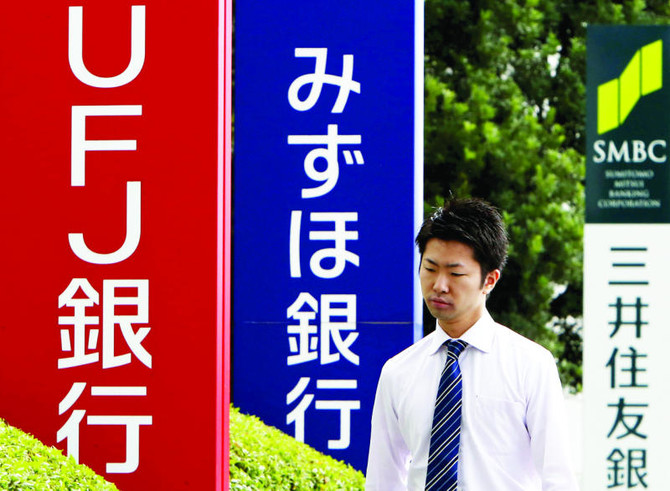
Japan company Uhuru signs smart-city business pact in Saudi Arabia

- The company plans to use Uhuru’s strengths to enhance convenience and safety for religious tourism, including the Hajj
TOKYO: Tokyo-based Uhuru Corp. has signed an agreement with Web Arabia, a technology company operating in Riyadh, to promote smart city-related business in the Kingdom.
Web Arabia specializes in smart-city solutions and is a subsidiary of Metscco Heavy Steel Industries, a leading general-engineering company responsible for infrastructure construction in Saudi Arabia.
The company plans to use Uhuru’s strengths to enhance convenience and safety for religious tourism, including the Hajj, as well as urban infrastructure such as buildings, stadiums and airports.
Uhuru has been developing various projects in the Kingdom, including research and development programs in collaboration with local organizations.
Saudi Arabia recorded 27.4 million foreign visitors in 2023.
ADNOC to boost production target by 2030

RIYADH: The Abu Dhabi National Oil Co. plans to boost its local manufacturing target for critical industrial products to 90 billion dirhams ($24.5 billion) by 2030 in a bid to strengthen the UAE’s industrial sector and expand local manufacturing capabilities.
ADNOC made the announcement at the “Make it in the Emirates” forum, adding that the new target is part of its expanded In-Country Value program, which aims to drive an additional 178 billion dirhams back into the UAE economy by 2028.
“This expanded initiative will support the UAE’s economic diversification, attract local and international investors, and provide high-skilled private sector jobs for UAE nationals. Additionally, it will stimulate entrepreneurial growth and drive sustainability in ADNOC’s supply chain,” said Sultan Ahmed Al-Jaber, minister of industry and advanced technology, and ADNOC managing director and group CEO.

This expanded initiative will support the UAE’s economic diversification, attract local and international investors.
Sultan Ahmed Al-Jaber, UAE minister of industry and advanced technology
The company said its previous 2027 target of 70 billion dirhams worth of products was “delivered ahead of schedule” following the award of two contracts for metal pipes and valves worth 16.8 billion dirhams to local manufacturers.
The contracts include 8.8 billion dirhams for metal pipes to PM Piping Petroleum Equipment, Ajmal Steel, and the Emirati-owned Al Gharbia Pipe Co.; and 8 billion dirhams for mechanical valves to Samamat, Camtech Manufacturing, Tisco Valves Manufacturing, PTPA, MT Valves and Industries.
ADNOC’s expanded ICV program also aims to provide a micro, small and medium enterprises accelerator program to enable Emirati businesses and local mSMEs to conduct business across ADNOC’s supply chain.
Saudi Arabia’s Sports Boulevard doubles its existing investment fund to $533m
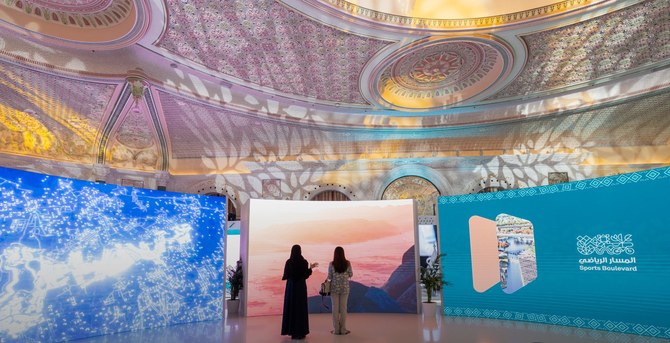
RIYADH: Private sector participation in the Sports Boulevard project is set to increase as the foundation behind Riyadh’s largest linear park plans to double its investment fund to SR2 billion ($533 million).
In a press release, the Sports Boulevard Foundation announced its partnership with Ajdan Real Estate Development Co. and Albilad Capital to add an additional SR1 billion to the private real estate investment fund “Sports Boulevard Real Estate Fund 1.”
This increased funding will be utilized to bolster private sector participation within the Arts District, one of the destinations within the Sports Boulevard project.
The Sports Boulevard Development Co. will continue to hold the majority of units in the fund, while Ajdan Real Estate Development Co. will serve as a developer and primary investor, and Albilad Capital will act as the fund manager.
This partnership underscores the collaborative effort behind the expansion, signifying a strategic alliance aimed at creating a vibrant urban space that enhances Riyadh’s cultural and economic landscape.
The project aims to develop a mixed-use lifestyle destination consisting of residential, retail, office, and entertainment components.
Covering a land area of over 39,000 sq. m. at the heart of the Arts District, the total combined built-up site spans approximately 240,000 sq. m., boasting over 100,000 sq. m. of net leasable area.
The design of this destination draws inspiration from the Sports Boulevard Design Code, influenced by the Salmani Architectural Style. This ensures a dynamic and immersive lifestyle experience for both residents and visitors.
Situated at the intersection of Prince Mohammed bin Salman bin Abdulaziz Road and Prince Turki bin Abdulaziz Al Awwal Road, it offers expansive public spaces, recreational areas, and cycling-friendly tracks.
Covering an area of 184,000 sq. m., the project extends beyond private development parcels, providing ample space for recreational activities and pedestrian-friendly pathways, efficiently linked to the promenade and cycling bridge.
Sports Boulevard, a mega project launched by King Salman bin Abdulaziz in 2019, and supported by Crown Prince Mohammed bin Salman bin Abdulaziz, spans over 135 km on Prince Mohammed bin Salman bin Abdulaziz Road.
It features safe green pathways for pedestrians, cyclists, athletes, and horse riders, connecting Wadi Hanifah in the west to Wadi Al Sulai in the east.
Additionally, the project includes over 4.4 million sq. m. of greenery, open spaces, and up to 50 multidisciplinary sports facilities. It also hosts several unique destinations and investment zones, totaling an area exceeding 3 million sq. m.
Closing Bell: Saudi benchmark index edges down to close at 11,831
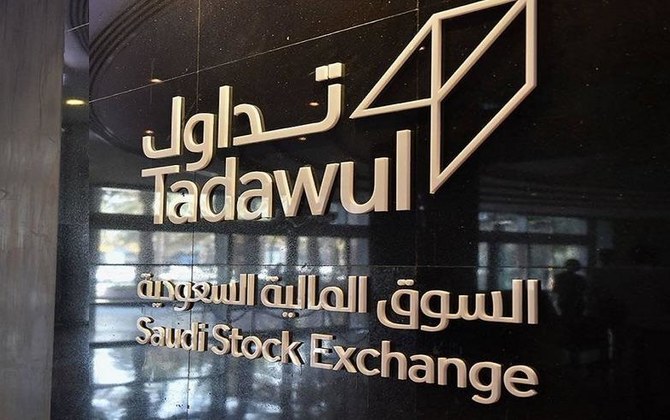
RIYADH: Saudi Arabia’s Tadawul All Share Index slipped on Monday, losing 19.42 points, or 0.16 percent, to close at 11,831.22.
The total trading turnover of the benchmark index was SR5.8 billion ($1.5 billion) as 110 stocks advanced, while 108 retreated.
On the other hand, the Kingdom’s parallel market Nomu also slipped 189.65 points, or 0.71 percent, to close at 26,448.54. This comes as 30 stocks advanced while as many as 34 retreated.
Similarly, the MSCI Tadawul Index also dropped 2.67 points, or 0.18 percent, to close at 1,470.41.
The best-performing stock of the day was Saudi Paper Manufacturing Co. The company’s share price surged 4.89 percent to SR75.10.
Other top performers included CHUBB Arabia Cooperative Insurance Co. as well as Middle East Specialized Cables Co., whose share prices soared by 3.96 percent and 3.46 percent, to stand at SR34.10 and SR32.85 respectively.
On Nomu, Osool and Bakheet Investment Co. was the top gainer, with its share price rising by 9.22 percent to SR48.
Other best performers on Nomu were View United Real Estate Development Co. as well as Al-Modawat Specialized Medical Co., whose share prices soared by 6.53 percent and 6.20 percent to stand at SR79.90 and SR150.80, respectively.
Additional top gainers included Almujtama Alraida Medical Co. and Bena Steel Industries Co.
On the announcement front, Saudi Basic Industries Corp., known as SABIC, received all necessary approvals from relevant authorities to complete the acquisition of its subsidiary Saudi Iron and Steel Co., also known as HADEED, by the Public Investment Fund.
In a statement on Tadawul, SABIC announced that it has satisfied all transaction-related conditions to complete the SR12.5 billion acquisition announced earlier in September 2023.
Furthermore, Saudi Arabia aluminum producer Al Taiseer Group Talco Industrial Co. is listing a 30 percent stake on the Tadawul stock exchange following an initial public offering, setting the final offer price at SR43 per share.
The company is selling 12 million shares and has completed the book-building process for institutional investors, which saw a coverage of 68.5 times the total offer shares, according to Alinma Investment Co., the lead manager and financial adviser to the issuance.
The book-building process for retail investors will run for two days starting on May 28. During this time, they can subscribe to a maximum of 10 percent of the shares. The final share allocation is set for June 2.
Saudi Arabia focused on promoting energy efficiency: top official
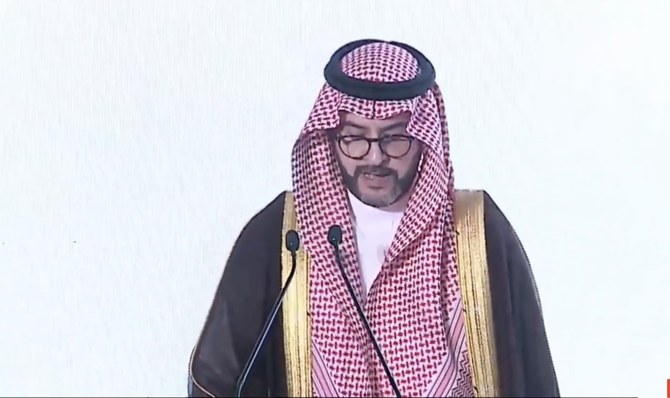
RIYADH: Saudi Arabia’s budding energy efficiency sector has witnessed notable growth, with the number of licensed service providers reaching 55 by the end of 2023, says a top official.
As the Kingdom strives to reduce its carbon footprint, with recently amplified goals to achieve net-zero by 2060, the Saudi Energy Efficiency Center is working to aide the nation in realizing these ambitions, Nasser Al-Ghamdi, the CEO of the center noted.
In his inaugural address at the Saudi ESCO forum, the top executive stressed the entity’s role in raising awareness about energy efficiency. He highlighted that 26 universities nationwide have adopted energy efficiency topics and courses in their curricula.
“Since the inception of the center, we have launched various initiatives that will help in reducing energy consumption,” Al- Ghamdi said.
Among these undertakings, the body has succeeded in launching and implementing more than 200 training programs in the field of energy efficiency, the CEO added.
The executive emphasized that the center has strived to create the necessary ecosystem for suppliers and their beneficiaries in this “promising market” to ensure the quality of energy-efficiency service providers.
He added that this will be achieved through the application of a licensing system for those interested in investing in this field after meeting the technical requirements necessary to provide the service.
Highlighting the role that the fledgling sector is playing in achieving net-zero goals, the CEO said: “The sector, which is considered relatively new, is helping companies and enterprises and buildings in finding solutions to efficiently use energy, including financing and managing solutions and projects. These companies also contribute energy consumption analysis and knowing opportunities for companies to improve their consumption.”
Due to the absence of energy efficiency activities in the commercial sector, one of the highest energy consumers in the Kingdom, accounting for 15.7 percent of total consumption of facilities in the nation, the body launched a pilot project to improve this field.
The initiative aims to improve conditions in the commercial sector by raising business owners’ awareness of opportunities, as implementing energy auditing projects is expected to improve overall efficiency.



